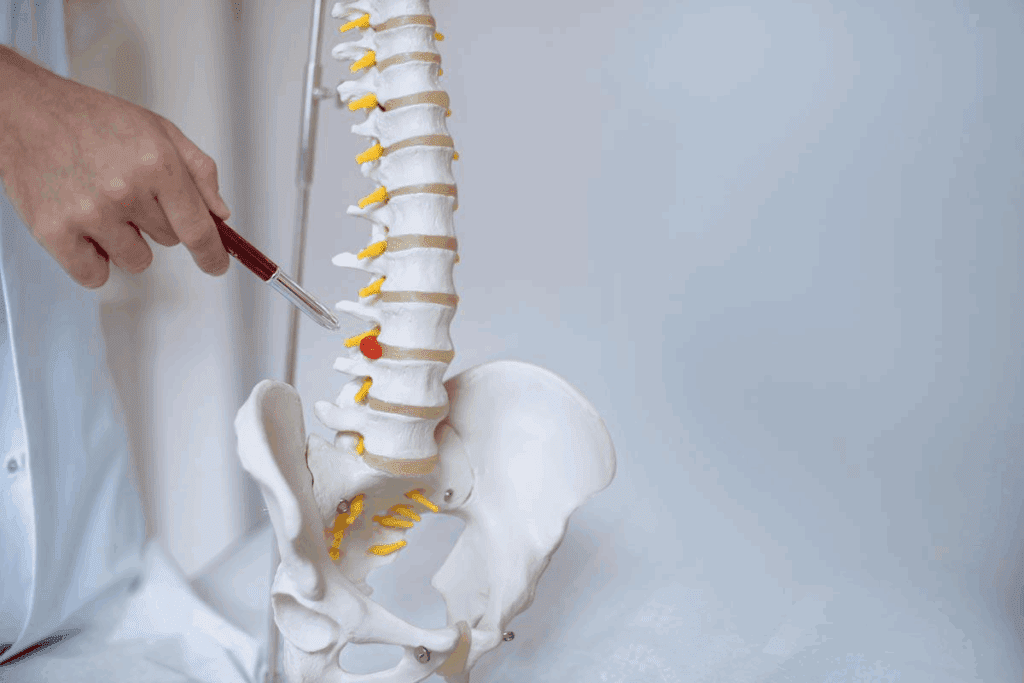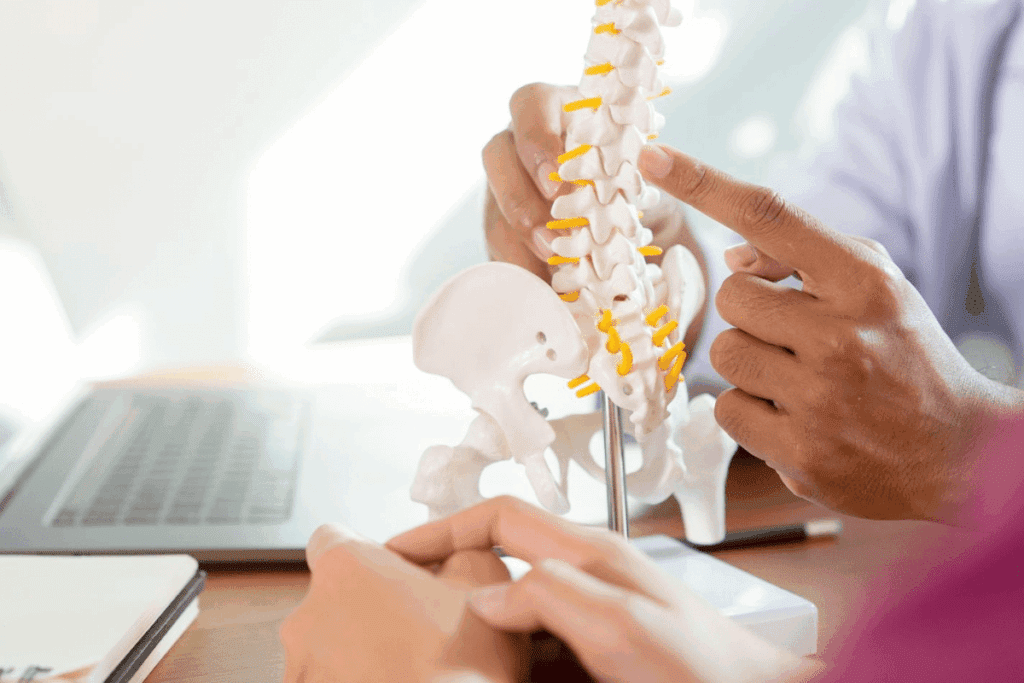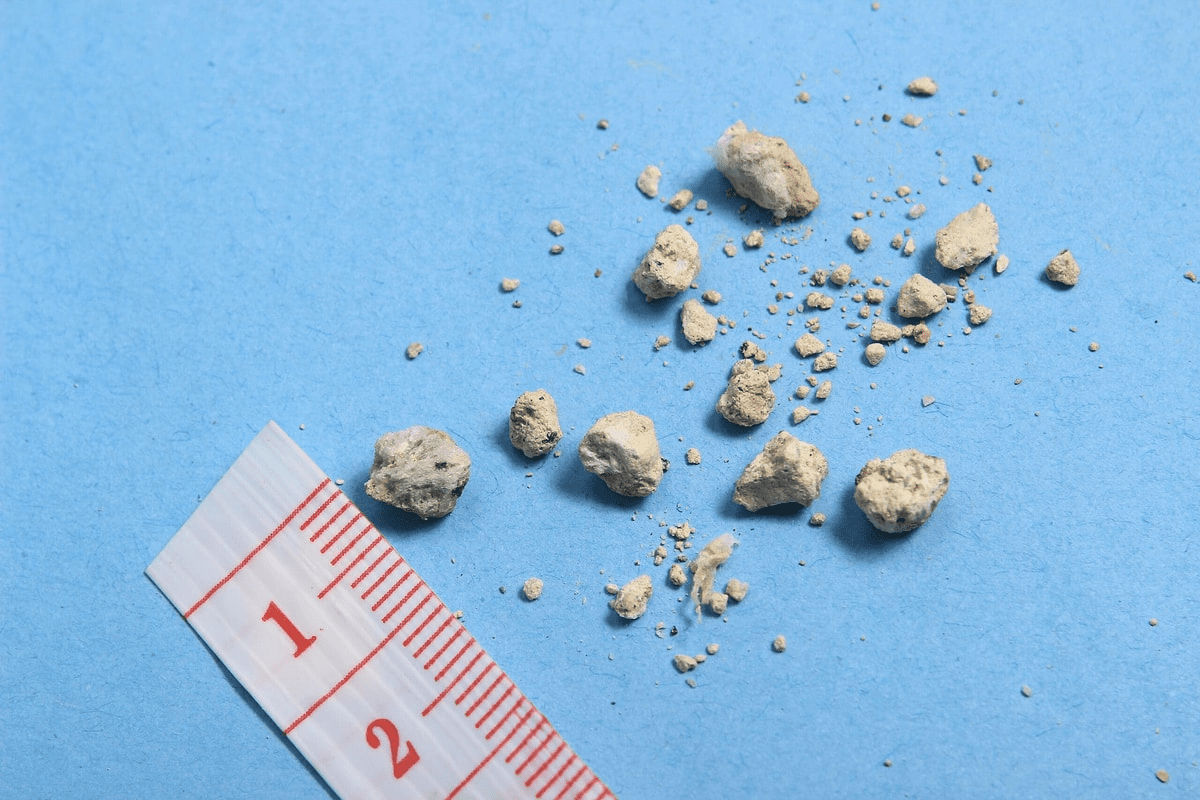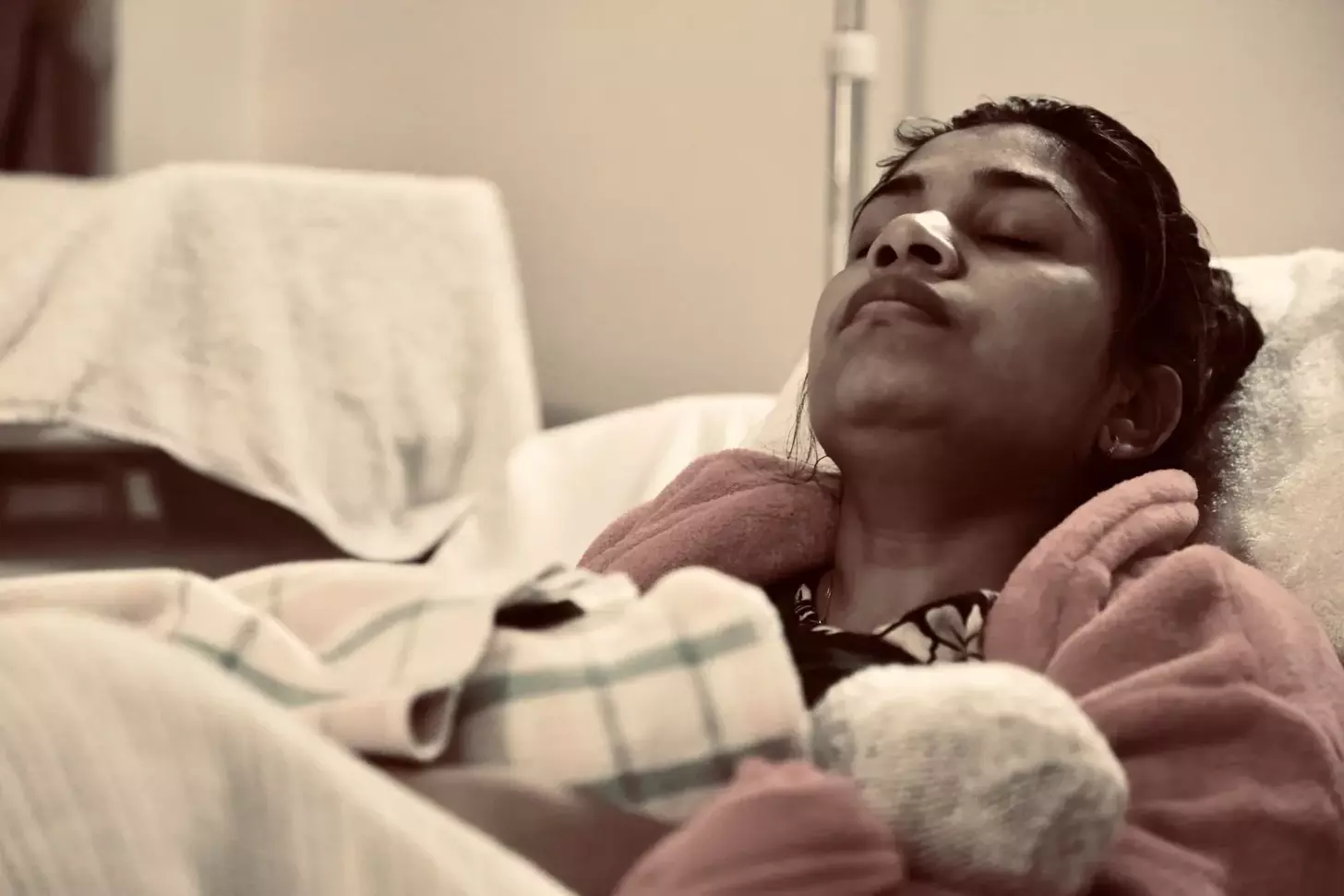Last Updated on November 26, 2025 by Bilal Hasdemir

Herniated discs are a common spinal disorder. They happen when the soft inner gel of the disc leaks out. This can cause pain and inflammation. At Liv Hospital, we look at different ways to treat this, including epidural steroid injections.
When the soft inner gel leaks out, it can be very uncomfortable. Cortisone shots are often used to help manage this pain. We will look into how well do cortisone shots help herniated disc work and share important facts for patients.
Key Takeaways
- Epidural steroid injections can provide relief for herniated disc pain.
- Cortisone shots are a common treatment option for managing inflammation.
- Understanding the effectiveness and safety of steroid shots is important.
- Patients should know the benefits and risks.
- Liv Hospital offers full care for herniated disc patients.
Understanding Herniated Discs: Causes and Symptoms

Herniated discs happen when the soft center of the disc leaks out through a tear. This can irritate nearby nerves. It’s most common in the lumbar spine, followed by the cervical spine, as the NCBI Bookshelf notes.
What Happens When a Disc Herniates
When a disc herniates, the soft center pushes against nerves. This can cause inflammation and pain. The pain and discomfort can be severe.
The process of herniation is complex. It involves the disc’s structure and the surrounding spinal anatomy. Knowing this helps doctors diagnose and treat herniated discs better.
Common Symptoms of Herniated Discs
Symptoms of herniated discs vary but often include localized back pain. They can also include radiculopathy (pain along a nerve path) and sensory disturbances like numbness or tingling. The symptoms depend on where and how severe the herniation is.
- Pain that worsens with movement
- Numbness or tingling in the extremities
- Muscle weakness in the affected area
Risk Factors for Disc Herniation
Several factors increase the risk of herniated discs. These include age, as discs degenerate over time. Smoking can also reduce disc nutrition. Occupational lumbar load, like heavy lifting, can strain the spine.
Knowing these risk factors can help prevent herniated discs. It can also help manage symptoms better.
What Are Cortisone Shots and How Do They Work?

Cortisone shots are used to ease pain from herniated discs. But, many don’t fully understand how they work. Steroid injections, also known as cortisone shots, are a popular choice for treating herniated disc pain.
The Science Behind Steroid Injections
Corticosteroids are man-made hormones that fight swelling and inflammation. Medical News Today says they’re used to lessen inflammation and pain, including from herniated discs. When injected, they target the inflamed area, easing pain and discomfort.
These shots work by calming the immune system’s reaction to inflammation. This reduces swelling around the herniated disc. It also lessens pressure on the nerves nearby.
Types of Steroid Injections for Herniated Discs
There are many steroid injections for herniated discs, with epidural steroid injections being the most common. Epidural injections put corticosteroids near the spinal cord. This method gets the medicine right to the problem area.
Other injections, like facet joint injections and selective nerve root blocks, target specific spine areas. They aim to cut down inflammation and pain.
The Anti-Inflammatory Process
The anti-inflammatory effect of cortisone shots is key for pain relief. When a disc herniates, it can cause inflammation around the nerves. Corticosteroids stop the body from making inflammatory chemicals. This reduces swelling and pain.
“Corticosteroids are potent anti-inflammatory agents that can significantly reduce inflammation and swelling, providing relief from pain associated with herniated discs.”
Knowing how cortisone shots work helps people make better choices for treating herniated disc pain.
Do Cortisone Shots Help Herniated Discs? The Evidence
Clinical trials and studies give us insight into cortisone shots for herniated discs. We look at the evidence on their success, focusing on success rates, studies, and what affects treatment results.
Success Rates and Clinical Studies
Many studies have checked if cortisone shots help with herniated disc pain. The NCBI Bookshelf says 42-56 percent of patients with lumbar disc herniation get pain relief from these shots.
A study in a top medical journal showed patients with cortisone shots had less pain and better function than those with a placebo.
| Study | Success Rate | Follow-Up Period |
| NCBI Bookshelf Study | 42-56% | Short-term |
| Medical Journal Study | 60% | 6 months |
Short-Term vs. Long-Term Effectiveness
Cortisone shots work differently for short-term and long-term pain relief. They can help a lot in the short term but their long-term benefits are being studied more.
A leading researcher says, “Cortisone shots are great for acute herniated disc pain. They give patients time to start physical therapy and other treatments.”
Factors That Influence Treatment Success
Many things can change how well cortisone shots work for herniated discs. These include how bad the symptoms are, if there are other health issues, and the patient’s overall health.
- Severity of symptoms: Those with worse symptoms might see more relief from cortisone shots.
- Presence of comorbidities: Conditions like diabetes or high blood pressure can impact results.
- Patient health status: A person’s overall health and lifestyle can affect how well cortisone shots work.
Key Fact #1: Effectiveness for Pain Relief
It’s important to know how well cortisone shots work for herniated disc pain. These shots, or epidural steroid injections, help many people feel better. They are a common treatment for pain from herniated discs.
Many studies show these injections help with pain relief. We’ll look at how often they work and how long the relief lasts.
Statistical Success Rates
Studies show that a lot of people get pain relief from these shots. The NCBI Bookshelf says 42-56 percent of patients with symptomatic lumbar disc herniation experience relief. This means a big group of people find their pain goes away or lessens.
Duration of Pain Relief Benefits
How long the pain relief lasts can vary. Some people get short-term relief that lasts weeks or months. Others get long-term benefits that last six months or more. What affects how long the relief lasts includes how bad the herniation is, the person’s health, and how they react to the shot.
It’s key to remember that cortisone shots don’t fix herniated discs. They help manage pain and improve life quality. By easing pain, these shots help people do better in physical therapy and other treatments.
Key Fact #2: The Procedure – What to Expect
When thinking about cortisone shots for herniated discs, knowing the procedure can ease worries. It helps patients get ready for what’s ahead. The steps include preparation and recovery.
Before the Injection
Before a cortisone shot, a detailed check is done to see if it’s right for you. This might include a physical check, looking at your medical history, and maybe imaging like MRI or CT scans. You might be told to stop certain medicines a few days before, like blood thinners.
It’s wise to have someone drive you home after. This is because any sedation might take time to wear off.
During the Procedure
The procedure, or epidural steroid injection, is done by a specialist in a clinical setting. You’ll lie on your stomach or side to access the herniated disc area. The skin is cleaned, and a local anesthetic numbs the area.
Using X-ray images, the doctor guides the needle to the right spot. Then, the cortisone is injected. The whole thing usually takes 15 to 30 minutes.
Recovery and Aftercare
Right after, you’ll be watched for any quick reactions. Some might feel more pain or discomfort at the site, which can be eased with ice and pain meds. It’s best to avoid hard activities for the rest of the day.
Slowly getting back to normal activities over a few days is suggested. The cortisone’s full effects might take a week to kick in. It works to lessen inflammation and ease nerve pressure.
Knowing what to expect before, during, and after a cortisone shot helps patients prepare. It aids in making informed choices about their treatment.
Key Fact #3: How Often Can You Get Epidural Steroid Injections?
Thinking about getting epidural steroid injections? It’s key to know how often you can get them. The right frequency is important for managing herniated disc symptoms well.
Recommended Frequency Guidelines
Medical guidelines say you can get these injections every three to six months. This advice comes from studies and expert opinions. It aims to find the right balance between benefits and risks.
“The best time for epidural steroid injections is something researchers are always looking into,” a study in the Journal of Neurosurgery: Spine says. “Right now, it looks like you can safely get them every 3 to 6 months, as needed.”
Safety Considerations for Multiple Injections
Epidural steroid injections can really help, but there are safety points to think about, mainly with more than one injection. Getting these injections too often might cause:
- Local tissue atrophy
- Adrenal suppression
- Osteoporosis
- Increased risk of infection
Talking to your healthcare provider about your personal risks is very important. They can help figure out the safest and most effective treatment for you.
Individual Factors Affecting Injection Frequency
How often you get epidural steroid injections can change based on several things. These include how bad your symptoms are, your overall health, and how you’ve reacted to injections before. Doctors look at these things to decide the best schedule for you.
Key factors influencing injection frequency include:
- Symptom severity and duration
- Previous response to steroid injections
- Presence of comorbid health conditions
- Patient’s age and overall health status
By looking at these factors, doctors can make a treatment plan that fits you best. This way, you get the most benefits from the injections while avoiding risks.
Key Fact #4: Possible Side Effects and Risks
Cortisone shots can help with herniated discs, but it’s important to know the possible side effects and risks. These injections, like any medical treatment, can affect the body in different ways.
Common Side Effects
Most people do well with cortisone shots, but some might face common side effects. These can include:
- Bruising or swelling at the injection site
- Flushing or a temporary feeling of warmth
- Changes in skin color or thinning of the skin around the injection site
- Increased blood sugar levels, which is a concern for diabetic patients
- Sleep disturbances or mood changes
Medical News Today says these side effects are usually mild and go away in a few days. But, it’s key to talk to your doctor about any worries.
Rare but Serious Complications
Even though rare, serious complications can happen with cortisone shots. These might include:
- Infection at the injection site, which needs quick treatment
- Nerve damage or irritation, causing numbness, tingling, or pain
- Allergic reactions to the cortisone or other parts of the injection
- Temporary paralysis or weakness in the affected area
A study in the Journal of Neurosurgery: Spine found the risk of serious complications is low. But, it’s important for patients to know about these risks.
“The risk of complications from epidural steroid injections is low, but not negligible. Patients should be counseled on the possible risks and benefits.”
Journal of Neurosurgery: Spine
Who Should Avoid Cortisone Injections
Some people should not get cortisone injections or should be careful. These include:
- Patients with active infections, as cortisone can weaken the immune system
- Those with diabetes, as cortisone can mess with blood sugar levels
- Individuals with severe osteoporosis, as steroids can make bones weaker
- People taking certain medications, such as anticoagulants, which can increase bleeding risk
It’s vital for patients to share their full medical history with their doctor. This helps decide if cortisone shots are safe and right for their herniated disc.
Key Fact #5: Cortisone Shots as Part of a Complete Treatment Plan
A treatment plan that includes cortisone shots can greatly help patients with herniated discs. This plan mixes injections with other treatments for the best pain relief and recovery.
Combining Injections with Physical Therapy
Using cortisone shots and physical therapy together is very effective for herniated discs. Physical therapy boosts flexibility, strength, and movement. Cortisone shots cut down on inflammation and pain. Research shows this mix leads to better results and less need for surgery.
Benefits of Combined Therapy:
- Improved pain relief
- Enhanced functional outcomes
- Reduced inflammation
- Better range of motion and flexibility
Lifestyle Modifications to Support Recovery
Changing your lifestyle is also key in recovering from herniated discs. Keeping a healthy weight, exercising regularly, and using good posture can help lessen symptoms and improve spinal health.
Key Lifestyle Changes:
- Maintaining a healthy weight
- Engaging in regular exercise
- Practicing good posture
- Managing stress
The Role of Exercise in Disc Herniation Recovery
Exercise is vital for recovering from disc herniation. It makes the muscles around the spine stronger, improves flexibility, and aids in healing. A good exercise plan can also stop future disc problems.
Exercise Benefits:
- Strengthens spinal support muscles
- Improves flexibility and range of motion
- Promotes healing and reduces inflammation
- Helps prevent future disc herniation
Key Fact #6: Cortisone Injections vs. Surgery for Herniated Discs
Dealing with herniated discs can be painful. Knowing the difference between cortisone injections and surgery is key. Each option has its role in treating herniated disc symptoms. The right choice depends on several factors.
When Injections May Help Avoid Surgery
Cortisone injections can help manage herniated disc symptoms without surgery. Patients with mild to moderate symptoms often see relief. These injections reduce inflammation and ease nerve pressure, leading to pain relief.
A study on the NCBI Bookshelf shows that steroid injections are often tried first before surgery (PMC7145384).
When Surgery Might Be Necessary Despite Injections
Even with cortisone injections, surgery might be needed in some cases. Those with severe or progressive neurological deficits may need surgery to avoid more damage. If injections don’t work, surgery could be the next step.
Decision-Making Factors for Treatment Options
Choosing between injections and surgery involves several factors. These include the severity of symptoms, the patient’s overall health, and any neurological deficits. Healthcare providers use these to guide treatment choices.
The right choice depends on the patient’s specific needs. Understanding both options helps patients and doctors create a treatment plan that works.
Key Fact #7: Alternative Treatments for Herniated Discs
Herniated disc treatment has evolved, with many alternatives to cortisone injections. These options can help relieve pain and support recovery. It’s important to explore a range of treatments that fit individual needs.
Non-Invasive Treatment Options
Non-invasive treatments manage symptoms and promote healing without surgery. These include:
- Physical therapy: Exercises strengthen muscles around the spine, improving support and reducing pain.
- Lifestyle modifications: Maintaining a healthy weight, improving posture, and exercising regularly can help manage symptoms.
- Chiropractic care: Spinal manipulation and adjustments can improve spinal alignment and reduce pressure on the affected disc.
These non-invasive methods can be very effective, often when used with other treatments. For example, physical therapy can enhance the effects of cortisone injections and support long-term recovery.
Other Injection-Based Therapies
Other injection-based therapies are also being explored for herniated discs. These include:
- PRP (Platelet-rich plasma) therapy: Involves injecting platelet-rich plasma from the patient’s own blood to promote healing.
- Stem cell therapy: Uses stem cells to potentially regenerate damaged disc tissue.
- Nerve root blocks: Targeted injections that can help diagnose and treat pain related to specific nerve roots.
These therapies offer promising alternatives to traditional cortisone injections. For instance, PRP therapy has shown promise in promoting healing and reducing inflammation in various musculoskeletal conditions.
Emerging Treatments for Disc Herniation
The field of orthopedics is always evolving, with new treatments for herniated discs being developed. Some emerging treatments include:
- Regenerative medicine: Techniques that aim to repair or replace damaged tissues, potentially providing long-term solutions for disc herniation.
- Minimally invasive surgical techniques: Procedures that aim to reduce recovery time and minimize tissue damage while addressing the herniated disc.
- Biologic treatments: Therapies that utilize biological agents to promote healing and reduce inflammation.
As research continues, these emerging treatments may offer new hope for patients with herniated discs. They provide more effective and personalized treatment options.
Conclusion: Making an Informed Decision About Cortisone Shots for Herniated Discs
Cortisone shots can help with herniated discs by easing pain. Studies show they can make people feel better and move easier. For example, a study on NCBI PMC shows they work well for back pain from herniated discs.
Deciding on cortisone shots means knowing the good and bad sides. It also depends on how bad the pain is and your overall health. It’s important for patients to learn about their options.
Talking to a doctor about treatment plans is key. This way, patients can choose what’s best for them. Using cortisone shots wisely can help avoid more serious surgeries.
FAQ
What is a herniated disc, and how does it cause pain?
A herniated disc happens when the soft center leaks out through a tear. This causes pain and swelling. The leaked material can press on nerves, leading to back pain and other symptoms.
How do cortisone shots work to relieve herniated disc pain?
Cortisone shots reduce swelling around the herniated disc. This swelling can press on nerves and cause pain. The shots help ease this pressure, giving pain relief.
What are the success rates for cortisone shots in managing herniated disc pain?
Studies show 42-56 percent of patients get relief from herniated disc pain with cortisone shots. Relief can last from short-term to long-term, depending on the individual.
How often can you get epidural steroid injections for a herniated disc?
Guidelines suggest getting epidural steroid injections every three to six months. But, how often depends on your symptoms and health.
What are the possible side effects and risks of cortisone shots?
Side effects include bruising, flushing, and temporary pain increases. Serious risks like infection and nerve damage are rare but possible. People with diabetes or on certain meds should avoid them.
Can cortisone shots be used as part of a treatment plan for herniated discs?
Yes, cortisone shots can be part of a treatment plan. They work best when combined with physical therapy and lifestyle changes. This approach can improve pain relief and function.
How do cortisone injections compare to surgery for herniated discs?
Cortisone shots might avoid surgery for mild to moderate symptoms. But, surgery is needed for severe cases. The choice depends on symptom severity and health.
Are there alternative treatments for herniated discs?
Yes, there are non-invasive options like physical therapy and lifestyle changes. Other injections, like PRP therapy, are also available. New treatments, including regenerative medicine, are being explored.
What should I consider when deciding on cortisone shots for a herniated disc?
When thinking about cortisone shots, talk to your healthcare provider. Discuss your symptoms and health to find the best treatment for you.
Reference:
- Bicket, M. C., Hoffecker, L., et al. (2016). Epidural injections for spinal pain: A systematic review and meta-analysis evaluating the “control” injections in published trials. Pain Medicine, 17(11), 2067–2080.






